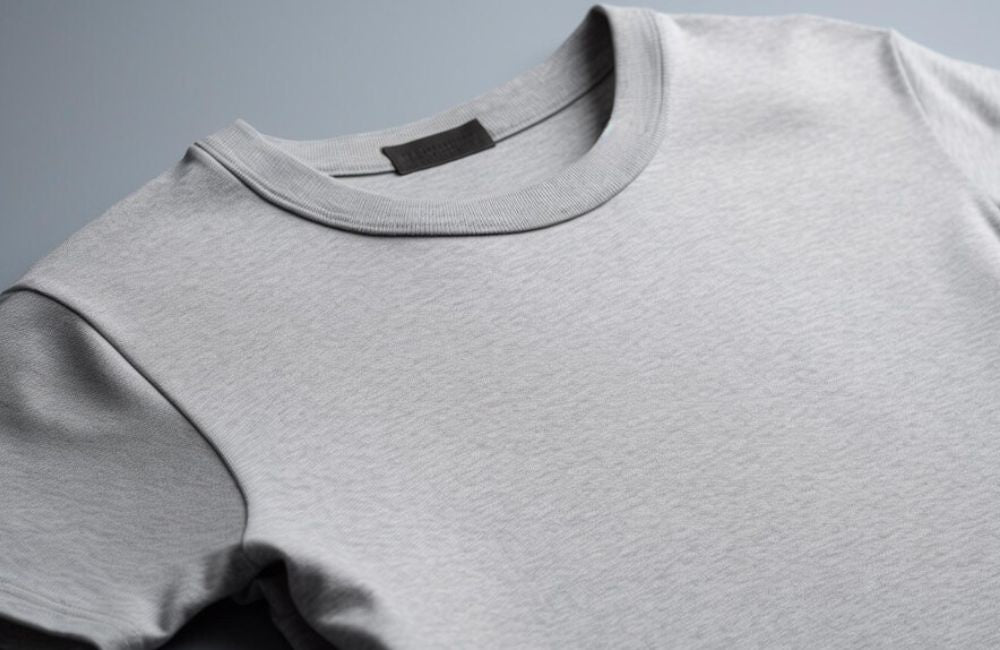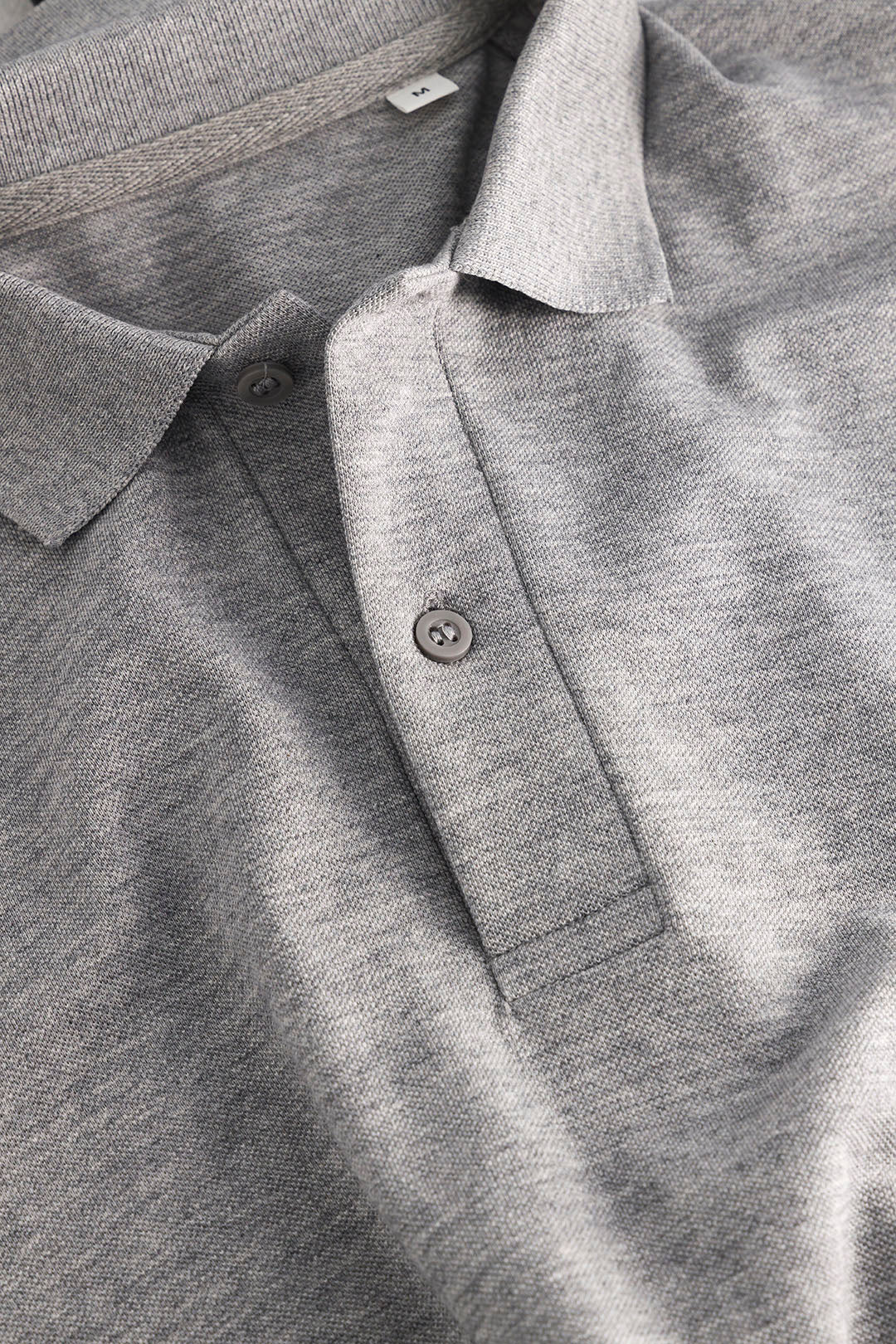T-shirts are a staple fashion accessory in every wardrobe, irrespective of age and fashion flavour. Whether lounging at home, hitting the gym, or dressing up for a casual outing, a well-fitting, comfortable t-shirt can be your best friend. However, not all t-shirts are created equal, and the key to finding the perfect one lies in understanding their different materials. In this comprehensive guide, we'll learn about t-shirt materials, explore their unique characteristics, and help you decide when selecting the ideal fabric for your wardrobe.
Understanding Different T-Shirt Materials
Cotton
For a good reason, cotton reigns supreme as the go-to material for t-shirts. Cotton is a natural fibre that is soft, breathable, and absorbent. Its innate properties make it incredibly comfortable to wear, allowing your skin to breathe even on the hottest days. However, cotton does have its drawbacks—it's prone to shrinking in the wash and may wrinkle easily without proper care. Despite these minor inconveniences, cotton t-shirts remain a staple in every wardrobe for their unmatched comfort and versatility.
Polyester
On the opposite end of the spectrum, we have polyester—a synthetic fabric known for its durability and wrinkle resistance. Polyester t-shirts are known for retaining their shape and colour ability even after multiple washes, making them the best fit for those seeking long-lasting wear. However, polyester lacks the breathability of cotton. It may retain odours more readily, making it less ideal for strenuous physical activity or hot climates.
Blend (Cotton-Polyester)
It is only for those who want the softness of cotton and the sturdiness of polyester cotton-polyester blend. Blend t-shirts from Nerds Store offer a comfortable and versatile option for everyday wear. While they may not be as breathable as pure cotton, blend t-shirts balance comfort and longevity, making them popular among discerning consumers.
Rayon
Rayon, a semi-synthetic fabric, is prized for its luxurious softness and draping qualities. Rayon t-shirts have a smooth, silky texture that feels gentle against the skin, making them a popular choice for sensitive skin users. However, rayon has drawbacks—it may shrink or stretch when wet and requires delicate care to maintain its shape and appearance.
Bamboo
In recent years, bamboo fabric has emerged as a sustainable alternative to traditional t-shirt materials. Made from bamboo pulp, this eco-friendly fabric offers the softness of cotton with the added benefits of breathability and moisture-wicking properties. Bamboo t-shirts are ideal for eco-conscious consumers and those seeking a lightweight, breathable option for warmer weather.
Factors to Consider When Choosing T-Shirt Material
Comfort
The primary consideration when choosing a t-shirt material is comfort. Pay attention to how the fabric feels against your skin—soft, breathable materials like cotton and bamboo are often the most comfortable for everyday wear.
Durability
Look for a material that can withstand repeated washing and wear without losing shape or colour. Polyester and blend T-shirts, whether polo or v-neck, scoop, neck or crewneck, are known for their durability and resistance to fading, making them excellent choices for long-term wear. If you are a fan of polo shirts, don't forget to check out our Best T-shirt selection online.
Breathability
When selecting a material, consider the climate and intended use of the T-shirt—breathable fabrics like cotton and bamboo suit hot climates or physical activity. At the same time, polyester may feel stifling in comparison.
Moisture-Wicking Properties
If you plan to wear your t-shirt during physical activity or in hot weather, opt for a material with moisture-wicking properties. Bamboo and polyester are excellent choices for keeping you dry and comfortable during rigorous activities like workouts or outdoor adventures.
Environmental Impact
In an eco-conscious world, consider the sustainability of the material and how it's produced. Organic cotton and bamboo are eco-friendly options that help minimize the environmental impact and support sustainable farming practices.
Cost
Finally, balance your budget with the quality and longevity of the material. While some materials may be more expensive upfront, they offer better value in the long run due to their durability and longevity.
Best Practices for T-Shirt Care
To ensure your t-shirts last for years to come, follow these best practices for care and maintenance:
Washing instructions: Carefully follow the care instructions on the garment tag to prevent shrinking, fading, or damage to the fabric. Wash dark colours separately and avoid hot water to preserve the colour and integrity of the fabric.
Drying methods: Air drying is the gentlest option for drying t-shirts and helps maintain their shape and colour. Suppose you are using a dryer, dry at the low setting to prevent shrinking and damage to the fabric.
Storage tips: Fold t-shirts neatly and store them in a cool, dry place to prevent wrinkles and maintain them in pristine condition between wears.
Choosing the perfect t-shirt material is essential for comfort, durability, and style. By understanding the characteristics of different materials and considering factors like comfort, durability, breathability, moisture-wicking properties, environmental impact, and cost, you can find the perfect t-shirt for your needs. With proper care and maintenance, your favourite t-shirt will remain a staple in your wardrobe for years, providing comfort and style for every occasion.
Are you looking for a good t-shirt collection for you? Hit The Tee Shirt Nerd's website to choose from a Customizable T-shirt range that is only crafted for you.







